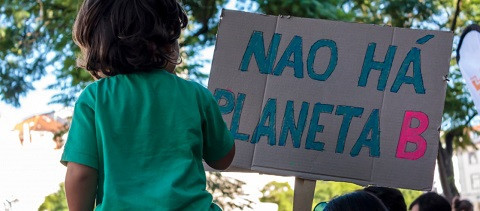
GCED Basic Search Form
Quick Search
Usted está aquí
Noticias

The UN Human Rights Council has adopted a historic Resolution to include the right to a healthy environment as integral to the Rights of the Child, with environmental education identified as a key enabler.
1.5 million children under the age of five die per year because of air and water pollution, exposure to toxic substances, together with other types of environmental harm. Children are the most vulnerable group to environmental harm, which also will contribute to disease, disability and early mortality throughout their life. It is also children who will be left with the disastrous effects of the climate crisis and biodiversity loss.
The Resolution, adopted at the 45th session of the Human Rights Council, on ‘Rights of the child: Realizing the rights of the child through a healthy environment’ urges States to take measures to ensure the rights of children and future generations in the face of environmental harm. This includes ‘recognizing a right to a healthy environment’ in national laws and policies, and ‘ensuring that the best interests of the child is a primary consideration with respect to environmental decision-making’.
Central to the Resolution is ensuring that education addresses environmental issues including climate change by integrating them in all levels of education to increase understanding and respect for the nature and prepare children for the future decisions they will have to make. This strengthens the implementation of Article 29 (1) of the Convention on the Rights of the Child on the aims of education which states that a child’s education shall be directed to “...the development of respect for the natural environment.” In addition, the Resolution calls for training of teachers to allow them to carry out effective teaching on environmental issues and challenges.
“As the lead UN agency for Education for Sustainable Development, UNESCO welcomes enshrining of environmental education into the rights of the child,” said Vibeke Jensen, Director of UNESCO’s Division for Peace and Sustainable Development. “To prevent the climate crisis and achieve all 17 Sustainable Development Goals, we need to recast our relationship with the world we live in. That begins with education.”
Achieving sustainable development requires a global change of mindsets, beliefs and behaviours, and education is vital to this task. Education for Sustainable Development (ESD) offers a framework for transforming learning to reorientate the human relationship with the natural environment and prepare individuals to take informed decisions and make responsible choices for environmental integrity. It builds the skills and attitudes needed to question the way we think, the values we hold and the decisions we make in the context of sustainable development.
As such, the Resolution helps reinforce the objectives of the new global ESD for 2030 framework that will be officially launched in May 2021 in Berlin, Germany. It also echoes and aligns with UNESCO Director-General Audrey Azoulay’s call at the United Nations Summit on Biodiversity in New York on 30 September for a restoration of the relationships between people and nature, in part through education, and the amplification of the power of youth.
UNESCO is a collaborating partner of the Children's Environmental Rights Initiative, a global coalition working to ensure children’s right to a safe and healthy environment, and welcomes this resolution as part of the global framework to enhance the integration of environmental issues in education.
URL:
https://en.unesco.org/news/realizing-rights-child-through-environmental-education
